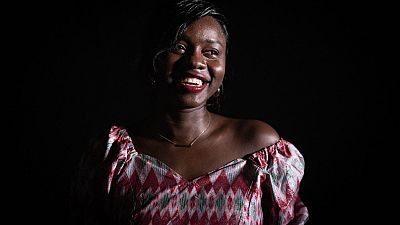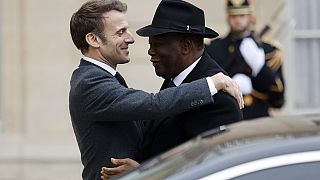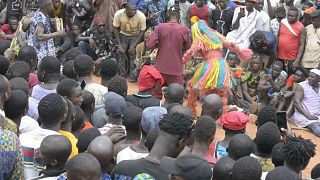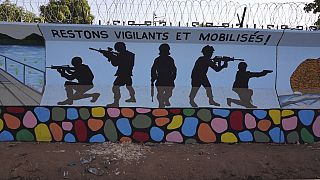Burkina Faso
"When people talk about terrorism, they don't talk much about women," said Apolline Traoré, a director from Burkina Faso, which hosted the latest edition of the continent's largest film festival.
Burkina Faso has suffered grievously from jihadism just like other Sahelian nations including: Mali, Niger and Mauritania.
Few movies have been made about jihadism in Africa and even fewer have focused on the plight of women at the hands of extremists.
But a slew of films showcased in the lastest edition of the FESPACO could signal a cinematic watershed.
Traoré's feature-length "Sira," which won the Silver Stallion of Yennenga award in the now ended FESPACO festival. The film describes a 25-year-old woman who is abducted by jihadists and has to draw on courage and smartness to survive.
Traore said she wanted to haul women out of the typical image of victimhood and place them in the "major role... (they play) in the fight against terrorism".
Tales of courage
The director said she was inspired by meeting women whose lives had been turned upside-down by jihadists.
One example, she said, was a woman who with a bullet lodged in her shoulder had spent five days looking for shelter for herself and her two children.
Nafissatou Cisse, a Burkinabe actress who plays the lead role of Sira, said she had drawn on "the rage" of women caught in the jihadist nightmare.
More than 10,000 people have lost their lives in Burkina Faso since jihadists swept in from neighbouring Mali in 2015 and more than two million people have fled their homes.
According to the ECOWAS envoy to the country, round 40 percent of the country is controlled by the insurgents.
Making "Sira" was in itself a gruelling challenge.
After a massacre at Solhan in June 2021 that left 132 dead -- the bloodiest single attack in the long-running jihadist campaign -- the authorities declined to renew authorisation for filming "Sira" in Burkina's deeply troubled north.
Lingering trauma
Another director whose home country is struggling with jihadism is Amina Mamani.
Her native Nigeria is the cradle of the Boko Haram movement, whose attacks began in 2009 and soon expanded to neighbouring Cameroon, Niger and Chad.
It leapt to global notoriety in 2014, when hundreds of schoolgirls were kidnapped in Chibok, in Borno state.
Mamani's short film, "The Envoy of God," tells the story of a girl aged about 10, who is kidnapped one night by jihadists to use her to carry out a suicide attack on a market -- but she decides otherwise.
"Terrorists use women. Men get killed, but women are kidnapped, forced into marriage and raped, and young girls selected to blow themselves up," said Mamani.
In another feature-length film, "Thorns of the Sahel," Burkinabe director Boubakar Diallo describes a nurse who is sent to a displaced persons' camp.
She said that during the film shoot, some of the displaced people "panicked when they saw armed men" -- actors playing the part of jihadists.
"We had to build up trust with them," she said.
Traore said that in all her 20 years in film-making, she had never experienced such fear in showing a film.
She fretted especially about how the public would react to her work.
"(Jihadism) is very sensitive and fresh in the heart of Burkinabe people and people living in the Sahel," she said.
Nearly half of those in the fiction competition this year were directed by women.












Go to video
Benin says 54 soldiers killed in Islamic militant attack
Go to video
Exhibition in Morocco explores a world of color
Go to video
Moscow International Film Festival kicks off in Russian capital
02:20
'Sinners’ mixes vampires and the Mississippi Delta into Ryan Coogler’s 1st original film
Go to video
Discover Cape Verde’s vibrant music scene at the Atlantic Music Expo
00:54
"Top Gun" and "Batman Forever" actor Val Kilmer dies at 65